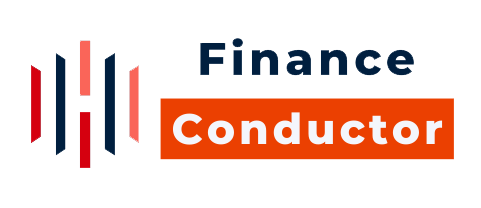Student loans have recently become an essential component of the higher education system. Most students have to take out loans to pay for their studies because school costs are rising. This essay will address the foundations of student loans, their advantages and cons, and ways to repay them.
What is a Student Loan?
Student loans are a sort of financial aid that helps cover the cost of attending a college or university, including tuition, fees, room and board, and other related expenditures.
Different sorts of student loans are available, including federal student loans, private student loans, and personal loans. While commercial banks or financial organizations give private student loans, the government grants federal student loans to qualified students.
Instead, students can seek personal loans from their banks or other lenders to finance their education fees. Personal loans are often unsecured loans.
What Qualifies a Person for Student Loans?
Student loans have become common for many people to pay for higher education. However, not all applicants are eligible for student loans, therefore it is crucial to know the conditions before applying.
Different persons may qualify for different sorts of student loans, based on the type of loan, the creditworthiness of the lender, and the applicant. Most student loan applicants normally have to meet specific conditions, so it’s crucial to know them before you apply.
Student Loan Eligibility
The lender chooses the student loan qualifying requirements. Lenders generally examine the following factors:
Credit Rating
A solid credit rating is often required to be approved by private lenders. To qualify for a private student loan, you may require a co-signer if you have a negative credit history or low credit score.
Income and Job Experience
Some lenders may need you to fulfill specified income standards and have a steady job history before you can apply for student loans.
Student Status
To qualify for student loans from some lenders, you may need to be enrolled in an approved school at least part-time.
Citizenship
To qualify for a student loan from a private lender, you may need to be a US citizen or lawful permanent resident.
How can I Apply for a Student Loan?
The steps to get a student loan are as follows:
See if a Private Student Loan is Right for You
Ensure you have researched all federal student loan options before applying for a private loan. Federal loans generally offer better repayment terms and lower interest rates. Private student loans may be a viable option if you still need money after considering all of your federal loan options.
Check Lenders
Find private student loan providers and evaluate their terms and interest rates. Consider application qualifications, the application process, payment options, and customer service.
Check your Credit Rating
For loans, private lenders often require a strong credit rating. Check your credit score and take steps to raise it, if necessary.
Collect the Necessary Data
Before you apply, gather all the necessary information, including information about your education, social security number, income, and any other supporting documents the lender may request.
Apply for a Loan
Complete the form, then mail it or submit it online. The lender may request more information or documents to complete the approval process.
Take out a Loan
Review the terms of the loan and accept it if approved. Ensure you understand the loan interest rate, payment plan, and other fees.
Receive Money
Once you have accepted the loan, the money will be sent directly to your school or sometimes to you, if the lender allows it, to pay for tuition and other fees.
What is the Interest Rate on Student Loans?
Student loans interest rates can alter depending on various circumstances, including the lender, the borrower’s credit rating, loan amount, and payback duration.
Student loan interest rates normally vary from 3% to 15%, but other lenders provide variable rates that might alter over time based on market conditions.
Borrowers need to search around and compare rates over the term of the loan. Generally, private student loans’ interest rates are greater than those of federal student loans.
Can a Student with Negative Credit get a Student Loan?
Although it can be tough, acquiring student loans with bad credit is feasible. Credit history is generally one of the lenders’ primary considerations when choosing whether to approve a loan application.
Although it is feasible to receive student loans, even with negative credit, it is not always the best option. Before making a selection, be sure to examine all your financing options and the associated expenses thoroughly.
How can I Acquire Immediate Student Loans?
Here are some additional ideas for receiving student loans fast:
Have a high credit rating. You can acquire a loan at a reduced interest rate if you have a high credit rating. You can apply for a loan with a short repayment term. This will allow you to pay less interest altogether.
Check your ability to make the required monthly payments. Make sure you can pay the monthly installments before taking out the loan.
Top 3 Banks for Student Loans
Based on interest rates, eligibility requirements, and other criteria, here are the top 3 banks in India for student loans:
State Bank of India (SBI)
Interest rate: from 8.50%
Eligibility requirements 21 to 60 years old, minimum 55% total at graduation
Other Benefits: No collateral is required for loans up to Rs 4 lakh with a repayment tenure of up to 15 years.
Axis Bank
Interest rate: 13.70% to 15.20%
Eligibility conditions Minimum 50% total, between 18 and 60 years old
Other Benefits: There is no security requirement for loans up to Rs 7.5 lakhs, and the repayment tenure can be up to 15 years.
HDFC Bank
Interest Rate: Preferred rates determined by the university or college
Eligibility Requirements Minimum cumulative grade point average, ages 18-60
Other Benefits: There is no security requirement for loans up to Rs 7.5 lakhs, and the repayment tenure can be up to 15 years.
Conclusion
Student loans are an important resource for those who want to attend university. However, before taking out a loan, students should consider debt management’s downsides and possible solutions.
By understanding the pros and cons of student loans and taking the necessary steps to manage them, students can achieve their academic goals and minimize the financial risks of student debt.






